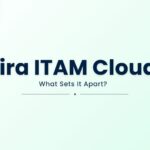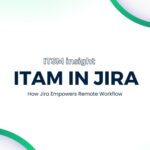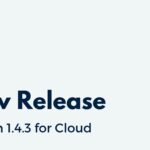In today’s fast-paced business world, track Jira assets is more than just a chore – it’s a superpower. Whether you’re managing office equipment, tech gadgets, or any other valuable IT assets, the way you track Jira assets can have a substantial impact on your organization’s success. In this article, we’ll delve into five essential strategies for mastering Jira asset tracking and explore how modern asset management solutions, like AssetIT, can help you achieve these goals.
Table of Contents
Precise Data Recording
To kick things off, let’s talk about the foundation of effective asset management for Jira: precise data recording. Imagine having the ability to capture every intricate detail about your assets effortlessly. Well, that’s exactly what you need. Recording your Atlassian asset information down to the smallest detail empowers you to make informed decisions about your assets. This level of granularity is crucial for efficient asset management.
Talking about data recording, you can tell that AssetIT provides a user-friendly interface that simplifies the process of inputting and updating asset information. Whether it’s serial numbers, purchase costs, supplier details, or even images of your Jira CMDB or Jira assets, AssetIT makes data input a breeze. With this comprehensive asset data, you’ll be better equipped to optimize asset utilization, plan maintenance schedules, and make well-informed decisions regarding your assets.

Moreover, AssetIT’s advanced data recording capabilities go beyond the basics. It allows you to implement asset tagging, which involves attaching unique identifiers to each asset, further enhancing tracking accuracy. AssetIT also enables real-time updates, ensuring that your asset information remains current. This comprehensive data recording sets the stage for effective asset tracking and management.

Centralize Asset Register: The Heart of Jira Asset Management
Now, picture this scenario: your assets are scattered across various spreadsheets, databases, and physical locations. Managing them becomes a logistical nightmare, resulting in inefficiency and increased risk. Centralizing your asset register is the solution. It involves consolidating all asset information into one central repository, making it easily accessible and transparent for authorized users.
AssetIT provides features that allow you to import and export data seamlessly, simplifying the process of creating a centralized asset register. By doing so, it eliminates data silos, improves transparency, and makes it effortless for you to locate and track your assets. With this centralized approach, you gain a comprehensive view of your asset landscape, making asset management more efficient and effective.

Maintain the Asset Life Cycle
Assets, like living organisms, have a life cycle. Managing this cycle effectively is vital for optimizing asset value and minimizing operational costs. Proper management ensures Jira assets are maintained, repaired, and replaced at the right times, which can save your organization a significant amount of money.
AssetIT supports the entire asset life cycle, from acquisition to disposal. It helps you schedule preventive maintenance, reducing the risk of costly breakdowns and downtime. Additionally, it tracks asset depreciation, ensuring accurate financial reporting. When an asset reaches the end of its life cycle, AssetIT guides you in its proper retirement, ensuring compliance with regulations and maximizing asset efficiency.
Learn how AssetIT contributes to the asset management process: 5 Key Stages of The Atlassian Asset Management Process
AssetIT’s maintenance scheduling capabilities are particularly noteworthy. It allows you to set up automated maintenance alerts and reminders, ensuring that your Jira assets receive timely attention. This proactive approach reduces downtime and extends the lifespan of your assets, leading to significant cost savings in the long run. Furthermore, AssetIT enables you to track maintenance histories comprehensively, helping you identify patterns and optimize maintenance processes for increased efficiency.
Craft In-Depth Reports to Track Jira Assets Effectively
Data is powerful, but it’s only as valuable as the insights it provides. That’s where comprehensive reporting comes into play. Having access to insightful and customizable reports is like having a compass in a vast wilderness of data. It helps you make informed decisions, optimize asset allocation, and plan for the future.
Now, let’s segue into how AssetIT aligns with this idea. AssetIT offers robust reporting features that can be tailored to your organization’s unique needs. Whether you require checked-in/checked-out reports, maintenance histories, or utilization analyses, these systems empower you to extract the information that’s most relevant to your operations. With these reports, you gain a clear understanding of your asset performance, allowing you to identify areas for improvement and cost-saving opportunities.
AssetIT takes reporting a step further by offering advanced analytics capabilities. It not only provides historical data but also allows you to generate predictive reports. These reports offer insights into future asset performance, helping you make proactive decisions and allocate resources effectively. Whether you’re analyzing asset utilization trends or forecasting maintenance needs, AssetIT’s reporting and analytics features empower you with the data-driven intelligence needed for strategic asset management.
Track Jira Assets with QR Codes
Imagine if track Jira assets was as easy as scanning a code. Well, with QR codes, it can be. QR codes are like magic keys that unlock a world of asset tracking efficiency. They simplify asset identification and tracking, reducing the risk of errors and ensuring compliance with asset-related processes.
Of course, AssetIT offers seamless QR code generation features that can revolutionize how you track your assets. QR codes can be attached to physical assets or associated with digital records within the system. When scanned with a mobile device, these codes provide instant access to asset details, maintenance schedules, and history. This real-time visibility enhances the accuracy and speed of asset audits, making asset tracking more efficient and reliable.

Last Words
Mastering asset tracking is no longer an option but a necessity in today’s competitive business landscape. The strategies outlined in this article – precision data recording, centralized asset registers, asset life cycle management, in-depth reporting, and QR code integration – are key to achieving this mastery – track Jira assets, and AssetIT is the solution that can help you excel in each of these areas.
Modern asset management solutions like AssetIT, equipped with these capabilities, can significantly enhance your ability to manage, maintain, and optimize your valuable Jira assets. With the right tools at your disposal, you’ll not only streamline your asset tracking processes but also make data-driven decisions that can propel your organization to new heights. So, embrace these strategies, leverage the power of AssetIT, and watch your asset tracking become a superpower that drives your organization’s success.
Incorporating AssetIT into the discussion has extended the article to provide more in-depth information on how this asset management solution can amplify the effectiveness of asset tracking strategies.
If you have any questions, please feel free to contact us at Support Desk for a prompt response.














Recent Comments